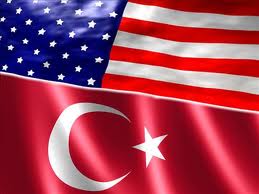Wikileaks Special: The Consequences for Turkey and the US
 Sunday, November 28, 2010 at 23:48 |
Sunday, November 28, 2010 at 23:48 |  Ali Yenidunya in
Ali Yenidunya in  EA Global,
EA Global,  EA Middle East and Turkey,
EA Middle East and Turkey,  US Foreign Policy,
US Foreign Policy,  US Politics
US Politics  The website WikiLeaks has revealed the first sampling, in more than 250,000 documents to be released, of secret reports from various U.S. embassies around the world. It is difficult to know where to start.
The website WikiLeaks has revealed the first sampling, in more than 250,000 documents to be released, of secret reports from various U.S. embassies around the world. It is difficult to know where to start.
According to Der Spiegel, "it is nothing short of a political meltdown for US foreign policy." The magazine, one of the first recipients of the cables, continues:
Never before in history has a superpower lost control of such vast amounts of such sensitive information -- data that can help paint a picture of the foundation upon which US foreign policy is built. Never before has the trust America's partners have in the country been as badly shaken.
One of the reports targets Secretary of State Hillary Clinton, who is reported to have requested US diplomats to spy on the diplomats of other countries at the United Nations. The information to be collected included personal credit card information and frequent flyer customer numbers, as well as e-mail and telephone accounts.
The leaks from Turkey are interesting and naive enough to shake relations between the two biggest NATO allies. In Ankara-related reports, two public figures are the main worries for American diplomats: Prime Minister Recep Tayyip Erdogan and, more remarkably, his Foreign Minister, Professor Ahmet Davutoglu. The former is on the spot due to his "Islamist tendencies" --- mark the word, "Islamist" not "Islamic". The latter is suspect due to alleged neo-Ottoman visions that make him "exceptionally dangerous".
I have written often of Ankara's pro-Western tendencies, underlining that Erdogan's government is nothing short of a liberal and pragmatic organisation, seeking relative autonomy in the region without raising an eyebrow in the Oval Office. So have a look at this ridiculous quotation, taken from an adviser to the ruling AKP party and added into a US report: "Turkey wants to take back Andalusia and avenge the defeat at the siege of Vienna in 1683."
There are only two options for an analyst: either some of the American diplomats are seriously ignorant about the politics and strategies pursued in the country where they are authorized to work or they are being asked to report any shred of "information" without filtering it.
There is another striking report that might shake Turkey's relations with its "brother" Azerbaijan in the eyes of its public, if not of its government.
Ankara signed protocols with its Armenian neighbours that could have opened borders but, as a direct result of harsh criticisms from Azeri "brothers" along with closer steps towards Moscow amidst Russian threats to increase gas prices, Erdogan stepped back. He was left with a long-time institution that has blocked Turkish-Armenian relations: the Karabagh problem between Azerbaijan and Armenia.
So Erdogan said that there could be no open borders until Armenia gave up any prospect of an invasion of Karabagh. The effect was only to display weakness in Ankara to others. According to a US report, Azeri President Ilham Aliyev spoke with an American diplomat about a recently-signed gas agreement with the Russians and said: "With this agreement, we wanted to show our Turkish friends that they cannot create a gas distribution centre."
And the information also undercuts Turkey's regional strategy, including its manoeuvring between Tehran, Washington, and Middle East countries. Talking to American diplomats, Deputy Secretary of Foreign Ministry, Feridun Sinirlioglu reportedly said that Damascus also saw Iran as a potential threat and claimed that Turkey's diplomatic moves succeeded in taking Syria out of the Iranian sphere of influence. He added that Israel's acceptance of Ankara's role as mediator role would further isolate Tehran.
However, probably, the most striking claim has come from the London-based Al-Hayat, over a still-to-be-released document. According to the report, Washington reportedly charged Turkey with failing to control its borders, because Iraqi citizens residing in Turkey provided Al Qa'eda with supplies to build bombs, guns, and ammunition. Moreover, the documents call the Kurdish insurgent group PKK "warriors for freedom and Turkish citizens," and say that the US set free arrested PKK members in Iraq. The documents also point out that US forces in Iraq have given weapons to the PKK and ignored the organization's operations inside Turkey.
The so-called US help to PKK members has been a rumour so far. There is no doubt that this confirmation, if it does emerge, will boost anti-Americanism in Turkey, with the Erdogan Government using it in favour of the "national interest" in the future.

Reader Comments